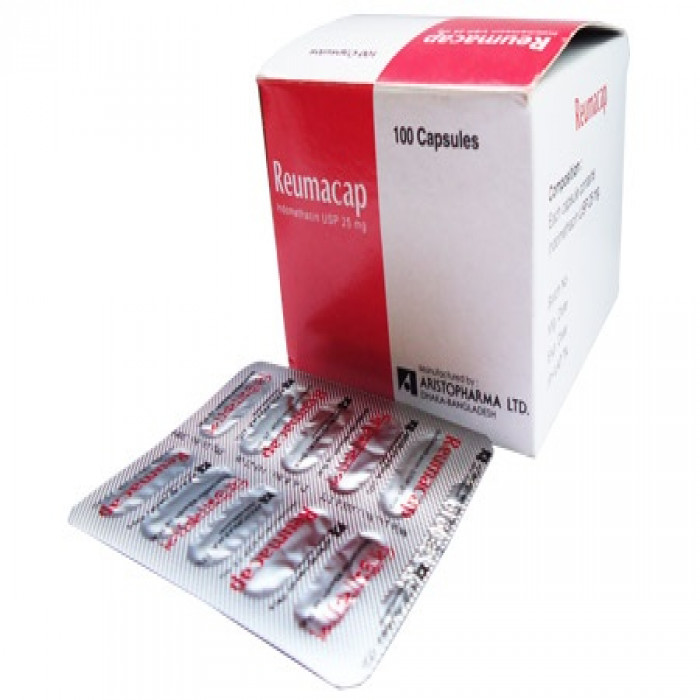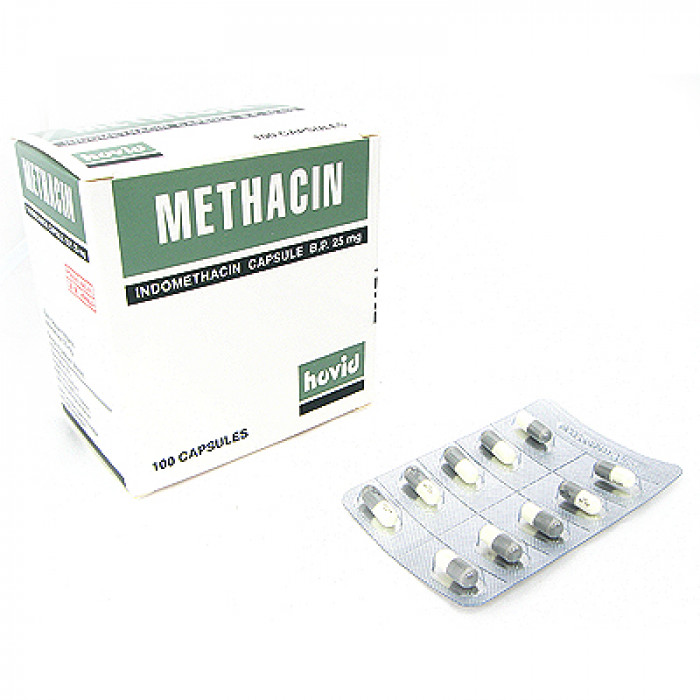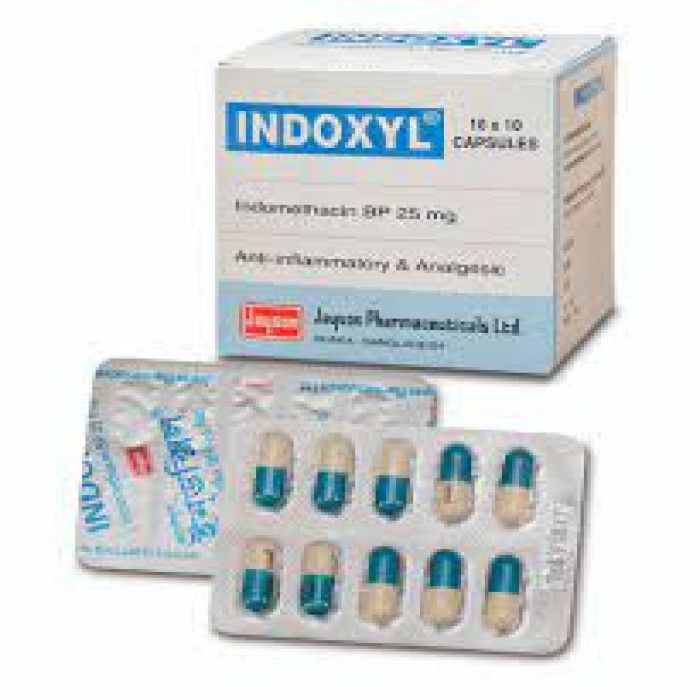
✔ 100% Authentic Product
👁️ Currently Viewing 663
Reumacap 25 mg (10 Pcs)
Manufacturer/Distributor: Aristopharma Limited
Generic Name: Indomethacin 25 mg Capsule

100% Genuine Products, Guaranteed
Safe & Secure Payments, Always
Fast, Secure & Efficient Delivery
Proper Packaging
 Cash on Delivery - All over Bangladesh
Cash on Delivery - All over Bangladesh Regular Delivery - 12-24 Hours, Dhaka City*
Regular Delivery - 12-24 Hours, Dhaka City* Regular Delivery - 24-48 Hours, All Over Bangladesh*
Regular Delivery - 24-48 Hours, All Over Bangladesh* ফ্রি ডেলিভারি! - ১৪৯৯ টাকা+ অর্ডারে ঢাকা
শহরে ।
ফ্রি ডেলিভারি! - ১৪৯৯ টাকা+ অর্ডারে ঢাকা
শহরে ।
✅ Description:
Indications
Indomethacin is indicated for the treatment of rheumatoid arthritis, ankylosing spondylitis, osteoarthritis (degenerative joint disease), gout, acute non-articular rheumatism (bursitis, synovitis, tendinitis).
Therapeutic Class
Drugs for Osteoarthritis, Drugs used for Rheumatoid Arthritis, Non-steroidal Anti-inflammatory Drugs (NSAIDs)
Pharmacology
Indomethacin is a non-steroidal anti-inflammatory drug (NSAID) having properties of antipyretic and analgesic effects. A great number of pharmacological studies have proved that Indomethacin has strong anti-inflammatory, analgesic and antipyretic properties. Unlike the corticosteroids, the effect of Indomethacin is not related to the pituitary gland or the adrenals.
Dosage
Indomethacin is available for oral administration as a 25 mg capsule and as a rectal suppository containing 100 mg of indomethacin.
The recommended dosage of Indomethacin is 50 mg to 200 mg daily in divided doses and should be individually adjusted to the patient’s response and tolerance. Use the lowest effective dose for the shortest duration consistent with individual patient treatment goals.
Unlike some other potent antirheumatic agents, an initial high “loading” dose of Indomethacin is not necessary. In chronic rheumatic disorders, initiating therapy with low doses, increasing gradually when necessary, and continuing for an adequate period (up to one month is recommended) will produce maximum benefit and minimise adverse reactions.
In patients with persistent night pain and/or morning stiffness, a dose of up to 100 mg at bedtime may be helpful in affording relief. It is rarely necessary to exceed a dosage of 200 mg per day.
In the treatment of acute gouty arthritis, the recommended daily dosage is 150 mg to 200 mg until all symptoms and signs subside.
In primary dysmenorrhoea, the recommended dosage is 25 mg three times a day starting with onset of cramps or bleeding and continuing for as long as the symptoms usually last.
Administration
To minimise the possibility of gastrointestinal disturbances, it is recommended that oral Indomethacin be taken with food, milk, or an antacid.
Interaction
It may interact with anticoagulants, lithium, diuretics, ß-blockers, diflunisal, aspirin, probenecid and sulfonylureas.
Contraindications
Indomethacin is contraindicated in patients with ulcer, gastritis, active ulcerative colitis, and should be used with caution in patients with a history of these disorders. It is also contraindicated in previously hypersensitive patient.
Side Effects
Headache, usually in the morning and mild vertigo may occur during the early weeks of therapy. These symptoms are transient and usually disappear with continued use or by reduction of the dose. Gastrointestinal reactions such as nausea, vomiting, diarrhea, epigastric and abdominal pain are often due to large doses of the drug and disappear when the dose is reduced.
Pregnancy & Lactation
Use in pregnancy: Not recommended for pregnant women, because at the present time clinical studies are insufficient.
Use in children: Not recommended for children.
Storage Conditions
Should be stored in cool and dry place
⚠️Disclaimer:
At ePharma, we’re committed to providing accurate and accessible health information. However, all content is intended for informational purposes only and should not replace medical advice from a qualified physician. Please consult your healthcare provider for personalized guidance. We aim to support, not substitute, the doctor-patient relationship.










